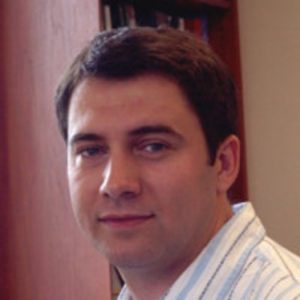Past Researchers and Scholars
Past Researchers and Scholars
Edgar A. Bernal
Edgar A. Bernal is a Senior Research Scientist with the Rochester Data Science Consortium (RDSC) and RDSC’s Associate Director. His research focuses on achieving high-level image and video abstraction and understanding through statistical learning. His current research interests include image and video analytics, computer vision, image- and video-based action and activity recognition, machine and deep learning, and multimodal fusion. As RDSC’s Associate Director, Edgar’s responsibilities include collaborating with faculty, students, and regional industry partners to prioritize projects by impact and viability, both technical and financial.
Prior to joining University of Rochester, Edgar was a Principal Scientist at the United Technologies Research Center (UTRC) in East Hartford, CT (from 2016 to 2018), and a Senior Research Scientist at the Palo Alto Research Center, A Xerox Company, in Webster, NY (from 2014 and 2016).
Andrew Boslett
Andrew Boslett is a senior instructor in the University of Rochester Medical Center’s department of public health sciences and also serves as economist for the Rochester Data Science Consortium. In his academic research, he has generally focused on the economic, environmental, and public health impacts of the recent oil and gas boom in the United States. In his role at the consortium, he provides data science and economic analytics capabilities to commercial and industrial clients.
 Jean-Philippe Couderc
Jean-Philippe Couderc
Jean-Philippe Couderc is associate professor of medicine in the cardiology department of Strong Memorial Hospital (Rochester, NY) and research associate professor of electrical and computer engineering at the University of Rochester (NY). Jean-Philippe’s activities focus on the development of ECG-based technologies to improve the field of cardiac safety. His work on developing ECG tools enabling the reliable measurements of the QT interval has been highlighted in The Wall Street Journal, more recent development of contactless monitoring of cardiac patients enabled the detection of cardiac arrhythmia using a simple webcam. He is the Founder and Director of Telemetric and Holter ECG Warehouse initiative (www.THEW-project.org), an initiative for the distribution of ECG and clinical information to the International scientific community in order to improve cardiac safety.
Jean-Philippe Couderc is holding a position of Special Governmental Employee at the Center for Drug Evaluation and Research (CDER) for the Food and Drug Administration of the US Department of Health and Human Services. In addition, he holds the position of Chief Technology Officer at iCardiac Technology Inc. a Rochester-based research spinoff delivering high-precision ECG-based safety and efficacy metrics to pharmaceutical companies worldwide.
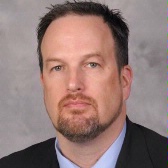 Timothy Dye
Timothy Dye
Tim Dye is a professor of obstetrics and gynecology and director of biomedical informatics at the Clinical and Translational Science Institute. He is also an anthropologist-epidemiologist specializing in applied public health. His work focuses on improving our understanding of complex maternal and child health problems through the creation and analysis of large integrated datasets. He is also interested in how technological innovation can improve health locally and around the world.
Dye has received project funding from national and international organizations, and his work spans more than 20 countries. It also helped establish birth and immunization registries in New York State, which provided a foundation for his interest in integrating genetic, molecular, electronic, and public health information.
Steven Feldon
Steven Feldon is professor and chair of ophthalmology, of visual sciences and director of the Flaum Eye Institute at the University of Rochester. Steve received his MD from Albert Einstein College of Medicine and his MBA from University of Southern California. Steve’s research interests pertain to neuro-ophthalmology and oculofacial plastics and orbital surgery. A current research focus that involves a double-masked, randomized, multi-site clinical trial is on the efficacy of visual training for recovering sight in stroke patients.
Daniel Gildea
Daniel Gildea is a professor in the Department of Computer Science at the University of Rochester. His research investigates various aspects of natural language processing, including machine translation, language understanding, analysis of multimodal data, and the computational complexity of parsing and translation problems. He has authored one book and over 100 papers, serves as reviewer for numerous publications, has been awarded an NSF CAREER grant, and a number of Google Faculty Awards.
 Gourab Ghoshal
Gourab Ghoshal
Gourab Ghoshal is an assistant professor of physics and astronomy. He joined Rochester in 2015 from Harvard University.
As a statistical physicist who works in the field of complex systems, his research interests include the theory and applications of complex networks as well as nonequilibrium statistical physics, game theory, econophysics, dynamical systems, and the origins of life. Ghoshal is also the editor of a book on complex networks and his work has been published in Nature, Science, and Physical Review Letters.
John Handley
John Handley is a research scientist in the Rochester Data Science Consortium at the University of Rochester. John’s research focuses on applying advanced statistical and data analytic methods in diverse fields such as image processing, psychometrics, urban analytics and mobility, service pricing and contracts, and quantitative paleoecology. In his role at the Rochester Data Science Consortium, he collaborates with industrial and academic scientists and engineers to drive economic impact. Prior to joining University of Rochester, John was a principal scientist at Xerox, Xerox PARC and Conduent, Inc. where he led a variety of projects in transportation, device management, and service contract analytics.
Wendi Heinzelman
Wendi Heinzelman is professor of electrical and computer engineering, of computer science and dean of Hajim School of Engineering & Applied Sciences at the University of Rochester. Wendi’s research interests include multimedia communication, wireless sensor networks, RFID systems, and heterogeneous networking. Her research group is currently pursuing the development of technologies and approaches for achieving robust data connections in heterogeneous network platforms using a mixture of ad-hoc and hierarchical networks. This technology advancement is critical for next-generation military networks.
 Thomas Howard
Thomas Howard
Thomas Howard is an assistant professor of electrical and computer engineering. He is working to develop techniques that identify the formulation of trajectory planning problems directly from unstructured natural language.
Recently, he developed a technique that uses probabilistic graphical models trained with a corpus of labeled examples to determine the constraint set that best represents a given command, thereby avoiding computational bottlenecks imposed by search in a state-action space for the most probable path.
Howard also directs the Robotics and Artificial Intelligence Laboratory.
 Krystel Huxlin
Krystel Huxlin
Krystel Huxlin is the James V. Aquavella professor of ophthalmology and associate chair for research at the Flaum Eye Institute. Part of her research focuses on developing new approaches to induce and study the properties of training-induced visual recovery in humans with blindness caused by visual cortex damage, a condition for which there is currently no rehabilitative treatment. In addition to characterizing the properties of recovery attainable with different visual training paradigms, her team is exploring attentional and other manipulations (e.g. transcranial electrical stimulation, pharmacology) to enhance the recovery potential of the damaged visual system. Functional MRI is then used to study how the remaining cortical circuitry is altered by both damage and subsequently, by visual training. This body of work is intended to improve our understanding of the plasticity inherent in brain-damaged individuals, and how this plasticity can be recruited to recover visual functions.
 Rajeev Raizada
Rajeev Raizada
Rajeev Raizada is an assistant professor of brain and cognitive sciences. He uses pattern-based fMRI (functional magnetic resonance imaging) analysis in order to understand the way the brain encodes and processes information. fMRI is nonintrusive and provides a safe way to study our brains in action.
Raizada’s work is laying a foundation for the day when neuroscientists will use a brain scan to diagnose the underlying causes of learning disabilities such as dyslexia and to detect impairments long before children experience difficulty or, potentially, failure in school.
Trevor Richardson
Trevor Richardson is a Data Scientist with the Rochester Data Science Consortium at the University of Rochester. Trevor’s research interests include machine learning, sequential data modeling, and predictive modeling using supervised, semi-supervised and unsupervised methods in the areas of computer vision, cognitive and brain science, robotics and automation.
Huaxia Rui
Huaxia Rui is an assistant professor of computers and information systems at the Simon Business School. His research interests include social media, health IT, and optimal contract design. Rui is currently working on a system called Twitter Sensor to give consumers even more power to check how well companies are treating their customers based on people’s discussions on Twitter.
 Gaurav Sharma
Gaurav Sharma
Gaurav Sharma is with the University of Rochester, where he is a professor in the Department of Electrical and Computer Engineering , Department of Computer Science , and Department of Biostatistics and Computational Biology. From 2008-2010, he served as the Director for the Center for Emerging and Innovative Sciences (CEIS), a New York state supported center for promoting joint university-industry research and technology development, which is housed at the University of Rochester. From 1996 through 2003, he was with Xerox Research and Technology in Webster, NY first as a member of research and technology staff and then as a Principal Scientist and Project Leader. Dr. Sharma is a fellow of the IEEE, a fellow of SPIE — the international society for optics and photonics, and a fellow of the Society for Imaging Science and Technology (IS&T). Dr. Sharma served as the Editor-in-Chief for the Journal of Electronic Imaging from 2011 through 2015. He has previously served as an associate editor for the Journal of Electronic Imaging, for the IEEE Transactions on Information Forensics and Security, for the IEEE Transactions on Image Processing and the open-access journals Research Letters in Signal Processing journal and Journal of Electrical and Computer Engineering. He is the editor of the “Digital Color Imaging Handbook” published by CRC press. Dr. Sharma was the Chair and Co-Chair, respectively, for the 2013 and 2012 IS&T/SPIE Electronic Imaging (EI) Symposia and Technical Program Co-Chair for the 2012 and 2016 editions of the IEEE International Conference on Image Processing (ICIP). He is the Chair of the IEEE Conference Publications Committee (CPC), serves on the IEEE Publication Services Product Board (PSPB) as a member-at-large and as the Treasurer, on the IEEE PSPB Strategic Planning Committee.
Cristiano Tapparello
Cristiano Tapparello is a research associate in electrical and computer engineering at the University of Rochester. Cristiano’s is interested in wireless communication and networking, mobile cloud computing, and designing novel techniques to facilitate the development and diffusion of smart and connected healthcare solutions.

Wencheng Wu
Wencheng Wu is a research scientist in the Rochester Data Science Consortium at the University of Rochester. Wen has expertise in video processing, computer vision, machine learning, image processing (specialized in defect detection), simulation/modeling, and psychophysical assessment. His current research interests include applying and advancing computer vision and machine learning for various applications such as transportation and healthcare. Prior to joining the consortium team, Wen worked at Xerox/PARC/Conduent where he worked on image quality metric developments, printer and sensor characterizations, image simulation and color modeling, color consistency measurement, image processing algorithms for defect detection, video processing and analytics for transportation and retail domains.
Beilei Xu
Beilei Xu is a research scientist in the Rochester Data Science Consortium at the University of Rochester. Beilei’s interests include signal/image/video analytics, machine learning and statistical modeling. Prior to joining University of Rochester, Beilei was a senior research scientist at PARC, Conduent and Xerox, where she contributed and led a variety of projects ranging from data analytic research in managed print services, subsystem modeling of xerographic marking process, image rendering and image-based defect detection, to computer vision and machine learning research in healthcare and transportation.
Geunyoung Yoon
Geunyoung Yoon is professor of ophthalmology, of biomedical engineering, of Optics, and in the center for visual science at the University of Rochester. Geunyoung’s research focuses on adaptive optics for correcting highly aberrated eyes, intraocular imaging, and presbyopic correction (multifocal and accommodative intraocular lenses).
Yue Zhao
Yue Zhao is a Data Scientist with the Rochester Data Science Consortium. His research focuses on clinical diagnosis search engines and publication database analytics. His ongoing research interests include natural language processing and information retrieval.
Aaron Bauer
 Aaron Bauer is senior optical research engineer in the Institute of Optics at the University of Rochester. Aaron’s research activities focus of freeform optics and wearable devices. His recent research interests include ray-based optical design tool for freeform optics, design of a freeform electronic viewfinder coupled to aberration fields of freeform optics, visual space assessment of two all-reflective, freeform, optical see-through head-worn displays, and computational optical distortion correction using a radial basis function-based mapping method.
Aaron Bauer is senior optical research engineer in the Institute of Optics at the University of Rochester. Aaron’s research activities focus of freeform optics and wearable devices. His recent research interests include ray-based optical design tool for freeform optics, design of a freeform electronic viewfinder coupled to aberration fields of freeform optics, visual space assessment of two all-reflective, freeform, optical see-through head-worn displays, and computational optical distortion correction using a radial basis function-based mapping method.
Kristin Bennett
 Kristin P. Bennett is the Associate Director of the Institute for Data Exploration and Application and a Professor in the Mathematical Sciences and Computer Science Departments and at Rensselaer Polytechnic Institute. Her research focuses on extracting information from data using novel predictive or descriptive mathematical models and data visualizations, and the applications of these methods to support decision making and to accelerate discovery in science, engineering, public health, and business. As an active member of the machine learning, data mining, and operations research communities, she has served as present or past associate or guest editor for ACM Transactions on Knowledge Discovery from Data, SIAM Journal on Optimization, Naval Research Logistics, Machine Learning Journal, IEEE Transactions on Neural Networks, and Journal on Machine Learning Research.
Kristin P. Bennett is the Associate Director of the Institute for Data Exploration and Application and a Professor in the Mathematical Sciences and Computer Science Departments and at Rensselaer Polytechnic Institute. Her research focuses on extracting information from data using novel predictive or descriptive mathematical models and data visualizations, and the applications of these methods to support decision making and to accelerate discovery in science, engineering, public health, and business. As an active member of the machine learning, data mining, and operations research communities, she has served as present or past associate or guest editor for ACM Transactions on Knowledge Discovery from Data, SIAM Journal on Optimization, Naval Research Logistics, Machine Learning Journal, IEEE Transactions on Neural Networks, and Journal on Machine Learning Research.
Mark Bocko
 Professor Mark Bocko earned his PhD in Physics from the University of Rochester in 1984 with research in the field of gravitational wave detectors and the quantum limits of weak force detection in the group of David H. Douglass. After a brief post-doctoral appointment in the same laboratory, he joined Rochester’s Electrical and Computer Engineering (ECE) department in 1985. His research has spanned multiple areas with its current focus on audio and acoustic signal processing. Previous research has been in the areas of electromechanical transducers, image sensors, non-contact ECG sensors, low-noise electronics, digital superconducting electronics, quantum coherent electronics, quantum computing, and quantum noise. He is also the Director of the Center for Emerging and Innovative Sciences (CEIS), a NYSTAR supported Center for Advanced Technology at the University of Rochester with the mission of promoting economic development through joint university-industry research and technology development. He served as the immediate past-Chair of the University of Rochester ECE Department.
Professor Mark Bocko earned his PhD in Physics from the University of Rochester in 1984 with research in the field of gravitational wave detectors and the quantum limits of weak force detection in the group of David H. Douglass. After a brief post-doctoral appointment in the same laboratory, he joined Rochester’s Electrical and Computer Engineering (ECE) department in 1985. His research has spanned multiple areas with its current focus on audio and acoustic signal processing. Previous research has been in the areas of electromechanical transducers, image sensors, non-contact ECG sensors, low-noise electronics, digital superconducting electronics, quantum coherent electronics, quantum computing, and quantum noise. He is also the Director of the Center for Emerging and Innovative Sciences (CEIS), a NYSTAR supported Center for Advanced Technology at the University of Rochester with the mission of promoting economic development through joint university-industry research and technology development. He served as the immediate past-Chair of the University of Rochester ECE Department.
Zhiyao Duan
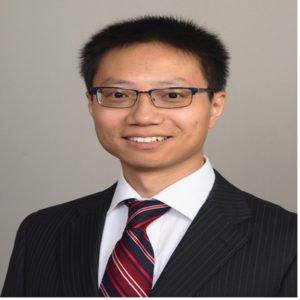 Professor Zhiyao Duan is an assistant professor in the Electrical and Computer Engineering Department. His research interest is in the broad area of computer audition, i.e., designing computational systems that can analyze and processing sounds, including music, speech, and environmental sounds. This is an emerging and interdisciplinary area that involves signal processing, machine learning, acoustics, and music theory. Specific problems that he has been working on include automatic music transcription, multi-pitch analysis, music audio-score alignment, sound source separation, and speech enhancement.
Professor Zhiyao Duan is an assistant professor in the Electrical and Computer Engineering Department. His research interest is in the broad area of computer audition, i.e., designing computational systems that can analyze and processing sounds, including music, speech, and environmental sounds. This is an emerging and interdisciplinary area that involves signal processing, machine learning, acoustics, and music theory. Specific problems that he has been working on include automatic music transcription, multi-pitch analysis, music audio-score alignment, sound source separation, and speech enhancement.
Chunlei Guo
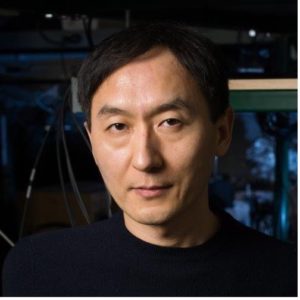 Chunlei Guo is a Professor in The Institute of Optics at University of Rochester. He is also a Professor in Physics and Materials Science at the University. His research is in femtosecond laser-matter interactions. He received his Ph.D. in Physics from University of Connecticut in 1999 and was later named one of the University’s 40 Under 40 Outstanding Alumni. His postdoctoral training was at Los Alamos National Laboratory from 1999 to 2001, where his work was awarded the Postdoctoral Publication Prize in Experimental Sciences. He joined the faculty of University of Rochester in 2001. His research at Rochester led to the discoveries of a range of highly functionalized materials through femtosecond laser processing, including the so-called black and colored metals, and super-hydrophilic and super-hydrophobic surfaces.
Chunlei Guo is a Professor in The Institute of Optics at University of Rochester. He is also a Professor in Physics and Materials Science at the University. His research is in femtosecond laser-matter interactions. He received his Ph.D. in Physics from University of Connecticut in 1999 and was later named one of the University’s 40 Under 40 Outstanding Alumni. His postdoctoral training was at Los Alamos National Laboratory from 1999 to 2001, where his work was awarded the Postdoctoral Publication Prize in Experimental Sciences. He joined the faculty of University of Rochester in 2001. His research at Rochester led to the discoveries of a range of highly functionalized materials through femtosecond laser processing, including the so-called black and colored metals, and super-hydrophilic and super-hydrophobic surfaces.
Michael Huang
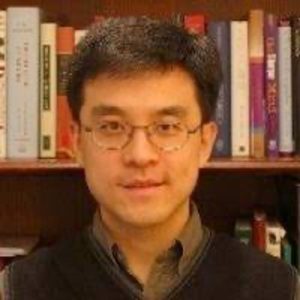 Michael Huang is a University of Rochester faculty of the Electrical and Computer Engineering department. He worked, while on sabbatical, at IBMT. J. Watson Research Center on future POWER processor concept development. His research interests include various aspects of high-performance computer architecture such as processor microarchitecture, communication and memory substrate, reliability, and energy-efficient and complexity-effective design. His is particularly interested in addressing emerging issues and exploring new capabilities in the underlying device, circuit, and manufacturing technology. He is a recipient of the NSF CAREER award and an IBM Faculty Award, and a member of the IEEE and the ACM.
Michael Huang is a University of Rochester faculty of the Electrical and Computer Engineering department. He worked, while on sabbatical, at IBMT. J. Watson Research Center on future POWER processor concept development. His research interests include various aspects of high-performance computer architecture such as processor microarchitecture, communication and memory substrate, reliability, and energy-efficient and complexity-effective design. His is particularly interested in addressing emerging issues and exploring new capabilities in the underlying device, circuit, and manufacturing technology. He is a recipient of the NSF CAREER award and an IBM Faculty Award, and a member of the IEEE and the ACM.
Yufeng Huang
 Yufeng Huang is an assistant professor of marketing at the Simon Business School. Yufeng’s research focuses on the intersection of Quantitative Marketing and Empirical Industrial Organization. His current research projects explore topics such as the evolution of consumer expertise, managerial quality and firm learning, the impact of product design on competition, and the emergence and impact of the e-commerce.
Yufeng Huang is an assistant professor of marketing at the Simon Business School. Yufeng’s research focuses on the intersection of Quantitative Marketing and Empirical Industrial Organization. His current research projects explore topics such as the evolution of consumer expertise, managerial quality and firm learning, the impact of product design on competition, and the emergence and impact of the e-commerce.
Zeljko Ignjatovic
Zeljko Ignjatovic received the PhD in Electrical and Computer Engineering from the University of Rochester in 2004. He is currently an associate professor of electrical and computer engineering. He has specialized in the design and analysis of analog VLSI integrated circuits. His research spans high dynamic-range Sigma-delta A/D converters, ultra-low power sensor interface circuits, fully-digital image sensors based on Sigma-delta pixel level A/D conversion, focal plane compression in imaging applications, and data hiding in audio signals. He has developed several architectures that improve Sigma-delta A/D conversion, architectures by reducing their offset, 1/f noise, and harmonic distortions. He has also developed a variety of image sensors based on Sigma-delta conversion at the pixel site. These image sensor architectures have shown 100-fold increase in their linear dynamic range with 50-fold reduction in power consumption with respect to existing CMOS image sensors. Also, he has developed and been investigating focal plane compression techniques where majority of multiplication computations required by the compression are rendered unnecessary.
Jason Kuruzovich
 Professor Kuruzovich’s course on database management integrates the technical challenges of managing data with the business challenges of deriving value through statistical analysis, visualization, and data mining. His research broadly examines the means through which both individuals and organizations derive value from information systems and focuses on the intersection between information systems and marketing. His research has been published in leading academic journals including the Journal of Marketing, Information Systems Research, and Organizational Behavior and Human Decision Processes. His previous work experience includes consulting experience with numerous Fortune 500 companies and several high-technology startups.
Professor Kuruzovich’s course on database management integrates the technical challenges of managing data with the business challenges of deriving value through statistical analysis, visualization, and data mining. His research broadly examines the means through which both individuals and organizations derive value from information systems and focuses on the intersection between information systems and marketing. His research has been published in leading academic journals including the Journal of Marketing, Information Systems Research, and Organizational Behavior and Human Decision Processes. His previous work experience includes consulting experience with numerous Fortune 500 companies and several high-technology startups.
Mitchell J. Lovett
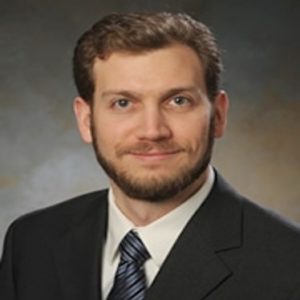 Mitchell Lovett is an associate professor of marketing at the Simon Business School. He joined the University of Rochester in 2008 after completing his PhD at Duke University, where he was the Sheth Doctoral Consortium Fellow.
Mitchell Lovett is an associate professor of marketing at the Simon Business School. He joined the University of Rochester in 2008 after completing his PhD at Duke University, where he was the Sheth Doctoral Consortium Fellow.
Lovett’s research interests include quantitative marketing, targeted advertising, advertising content and schedule choices, online and offline word-of-mouth, branding, social media listening, and consumer learning.
Jiebo Luo
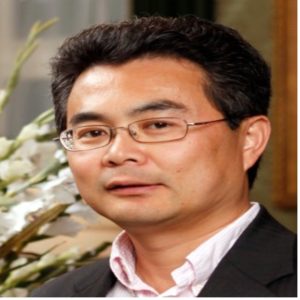 Jiebo Luo is a professor of computer science. He works on image understanding and develops systems that automatically label images, videos, and other forms of multimedia.
Jiebo Luo is a professor of computer science. He works on image understanding and develops systems that automatically label images, videos, and other forms of multimedia.
Dedicated to the idea that “every picture tells a story,” Luo mines images from the Internet and then teaches the computer to understand what the images mean. By looking at trends associated with these images, researchers can come up with predictions of how various products will sell and even the outcome of political elections.
Susana Marcos
 Professor Marcos is the David R. Williams Director of the Center for Visual Science at the University of Rochester. She was previously a Professor of Research, at IO-CSIC and the Director of the Visual Optics and Bio-photonics Lab. She has pioneered research in novel techniques to assess the optical properties of the ocular optics and the human retina. Major contributions include the development of Ocular Speckle Interferometry, Wavefront Sensing, Adaptive Optics, Quantitative Anterior Segment Optical Coherence Tomography, with applications in the evaluation, improvement and/or new developments in laser refractive surgery, intraocular lenses, and the treatment of keratoconus and presbyopia, among others.
Professor Marcos is the David R. Williams Director of the Center for Visual Science at the University of Rochester. She was previously a Professor of Research, at IO-CSIC and the Director of the Visual Optics and Bio-photonics Lab. She has pioneered research in novel techniques to assess the optical properties of the ocular optics and the human retina. Major contributions include the development of Ocular Speckle Interferometry, Wavefront Sensing, Adaptive Optics, Quantitative Anterior Segment Optical Coherence Tomography, with applications in the evaluation, improvement and/or new developments in laser refractive surgery, intraocular lenses, and the treatment of keratoconus and presbyopia, among others.
Panos Markopoulos
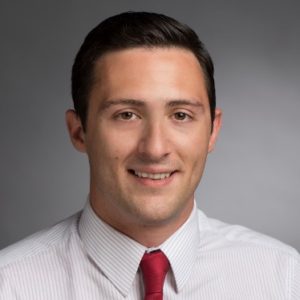 Dr. Panos P. Markopoulos is an Associate Professor of Electrical Engineering with the Rochester Institute of Technology where he directs the Machine Learning Optimization and Signal Processing Lab. His research expertise is in the areas of machine learning, data analysis, and communications, based on statistical signal processing and mathematical optimization. In these areas, he has co-authored more than 60 journal and conference articles. His current focus is on theory and algorithms for dynamic and robust tensor-data processing.
Dr. Panos P. Markopoulos is an Associate Professor of Electrical Engineering with the Rochester Institute of Technology where he directs the Machine Learning Optimization and Signal Processing Lab. His research expertise is in the areas of machine learning, data analysis, and communications, based on statistical signal processing and mathematical optimization. In these areas, he has co-authored more than 60 journal and conference articles. His current focus is on theory and algorithms for dynamic and robust tensor-data processing.
James McGrath
James McGrath is professor of biomedical engineering at the University of Rochester. Jim was a Distinguished Post-doctoral Fellow in the Department of Biomedical Engineering at the Johns Hopkins University and served as the first director of the university’s BME graduate program. He is currently the Associate Director of URNano – the University’s core facility for nano/micro fabrication and metrology. Jim’s recent research interests include interaction of nanoparticles with cells and protein mixtures, ultrathin silicon-based nanomembranes for filtration of molecules, nanoparticles, and biological co-cultures. Jim is also a co-founder and past president of SiMPore Inc. a local start-up company founded to commercially manufacture nanomembranes.
Pablo Postigo
 Professor Pablo Postigo is a professor at the University of Rochester Optics Department. His research focuses on Nanophotonic Devices: Quantum Photonics, Quantum Sensors, Solar Cells, Photonic Crystal Lasers, Biophotonics. He is currently part of the Nanophotonic Devices Group (NANOPOD) whose aim is to use the emerging field of Nano-photonics to develop new applications, materials and devices that can address current social and technological problems in the fields of optical telecommunications, energy and biomedical applications.
Professor Pablo Postigo is a professor at the University of Rochester Optics Department. His research focuses on Nanophotonic Devices: Quantum Photonics, Quantum Sensors, Solar Cells, Photonic Crystal Lasers, Biophotonics. He is currently part of the Nanophotonic Devices Group (NANOPOD) whose aim is to use the emerging field of Nano-photonics to develop new applications, materials and devices that can address current social and technological problems in the fields of optical telecommunications, energy and biomedical applications.
Jannick Rolland
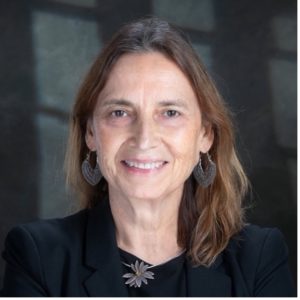 Jannick Rolland is the Brian J. Thompson professor of optical engineering, professor of optics, of biomedical engineering, and in the center for visual science at the University of Rochester. Jannick also directs the NSF I/UCRC Center for Freeform Optics (CeFO) and the R.E. Hopkins Center for Optical Design and Engineering. Jannick is co-founder and CTO of local UR spin-off LighTopTech Corporation. In 2014, Jannick received the OSA David Richardson Medal for “visionary contributions and leadership in optical design and engineering, enabling noninvasive, optical biopsy”. Jannick’s recent research interests focus on Gabor-domain optical coherence microscopy for detection of defects in manufacturing as well as optical coherence tomography for quantification of contact lens properties.
Jannick Rolland is the Brian J. Thompson professor of optical engineering, professor of optics, of biomedical engineering, and in the center for visual science at the University of Rochester. Jannick also directs the NSF I/UCRC Center for Freeform Optics (CeFO) and the R.E. Hopkins Center for Optical Design and Engineering. Jannick is co-founder and CTO of local UR spin-off LighTopTech Corporation. In 2014, Jannick received the OSA David Richardson Medal for “visionary contributions and leadership in optical design and engineering, enabling noninvasive, optical biopsy”. Jannick’s recent research interests focus on Gabor-domain optical coherence microscopy for detection of defects in manufacturing as well as optical coherence tomography for quantification of contact lens properties.
Chenliang Xu
Chenliang Xu is an Assistant Professor in the Department of Computer Science at the University of Rochester. Chenliang’s research interests range from solving core problems in computer vision to pushing the limits of their understanding in broader contexts of AI, including multisensory perception, cognitive robotics, and data science.













